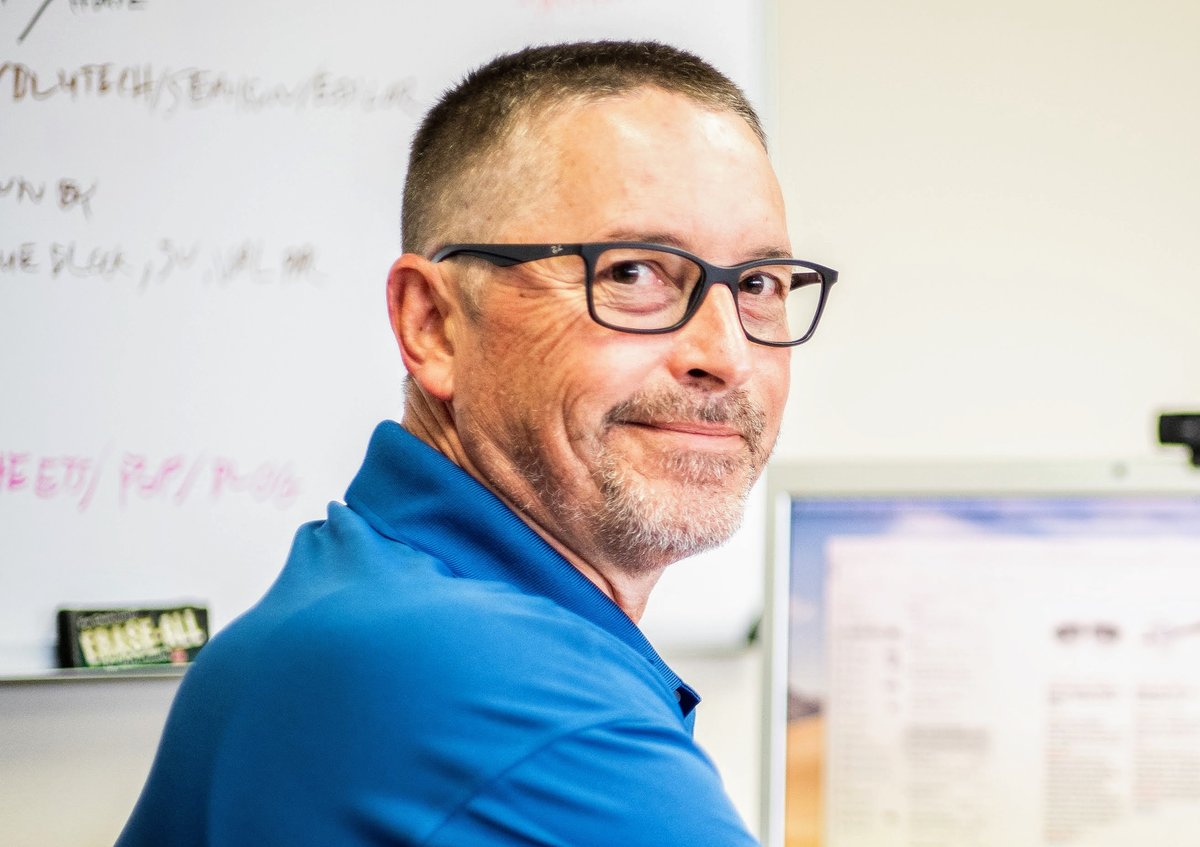Introduction
 Last time, we looked into the advantage of “speaking human” to our customers. We learned that an informed customer would be more likely to purchase than a uniformed customer would be.
Last time, we looked into the advantage of “speaking human” to our customers. We learned that an informed customer would be more likely to purchase than a uniformed customer would be.
Our industry has grown expeditiously over the last 10 to 15 years with more products and add-on goodies than we can keep up with. While we have more products than ever, studies have found that eyeglass unit sales are flat once again while dollars are up a bit. With this knowledge, you know we can expect to see about the same amount of customers this year as we did last year. To increase overall sales we have to increase the sales average per customer.
Increasing Dollars per Sale
There are a few ways to increase the dollars per sale. Second pairs, Non-glare, Transitions and upgrading lens styles are a great place to start. This all sounds easy on paper but we know we have “cheap” customers, steep competition from big box, online retail and sadly ECP's who just do not know how to sell or just don't want to. The big box retailers will always be here and online optical sales continue to grow. If we are to see a growth in independent optical sales it has to start with you.
Every consumer has a need or at least a want. In sales, the path of least resistance is too sell to the need. To find our customer's needs we simply get to know them. I am not talking about a 3-page form asking them everything under the sun. For me there is nothing more unfriendly, cold and impersonal than a questionnaire. They make me angry and I am sure I am not the only one. Having to take the time to fill it out is just the beginning of the road to poor service. Next comes sitting in front of some salesperson with their head down reading the questionnaire I just completed. No eye contact, no conversation. It is enough to make one sick. It reminds me a little of a bad online date site where after you read the file you don't know if this person is a super model or a serial killer. You will never build a relationship by looking at a questionnaire.
Just Listen and Care
Lets go back to the old days of sitting down and getting to know someone. Ask a few open-ended questions. Take time to listen, maybe even jot down a few notes. We need to remember that this customer is a person and at the end of the day they will be putting food on your table. I like food; it is very much like water and air. It keeps me alive so I want to take care of the people who help make life possible. Give them your best, which is pretty easy: just listen and care. Once you have taken the time to get to know you patients needs you can then recommend sales based upon those needs.
Many customers do not know what they need; they just don't know what they don't know. Many times it is simple and other times we need to dig for the needs. Take for example, tires. How often do you think about your tires on you car? My bet would be not that often. If I were to approach you right now with a great deal on a tire you would probably dismiss me right away. But, if you were sitting on the side of the road with a blown tire and I showed up with the same offer, I would be guaranteed a sale. Why? Because you had a need and I had a solution to that need. To be successful at sales we need to find the “blown tires” in our customers’ daily life.
Example Needs-based Conversation
Start by asking a simple question, “what does a day in your life look like?” Follow up with specific open-ended questions digging a bit deeper. You will also want to ask about hobbies and weekend activities. Here is an example of how to get a sale started.
You: Hi Mr. Jones, I am _______ , it is nice to meet you. Would you mind if we start with a few questions?
Mr. Jones: Sure, that would be fine
You: Tell me about your experience over the last year or so with your current glasses? What has been good and what has not been so good.
Mr. Jones: I have liked them. I see well and they have been comfortable.
You: Is there anything you would change?
Mr. Jones: It does seem that I have to turn my head a lot as I work on the computer. I was told to expect this but it would be nice to have a wider area.
You: We do have some new lens designs that might help with this and we will get to this in a few minutes. Mr. Jones, what would a day in your life look like?
Mr. Jones: Well I get up early and watch some Sports Center while drinking my coffee and getting some breakfast. I go to work at around 8 until 5. Most nights I hit the gym on the way home. Eat dinner and watch some TV.
You: What do you do at the office?
Mr. Jones: I am a claims adjuster.
You: That sound interesting. What’s involved with claims adjusting? Are you at a desk or out on the road?
Mr. Jones: Both. But, most of the day I am on my computer filling out paper work. Often, I will have to run out to get pictures of damaged cars but for the most part I am stuck at my desk.
You: That sounds like a busy day. When you go out to get the pictures, what does that look like?
Mr. Jones: Most often I will be at the repair shops. I will get the pictures of the cars and meet with the repair managers getting the quotes taken care of.
You: Do you end up going in and out often at the repair shop?
Mr. Jones: Yes, very often.
You: So you spend a good amount of time on your computer each day. How do your eyes feel at the end of the day?
Mr. Jones: Tired. I find myself rubbing them often by the end of the day.
You: I understand, I am confident we can help you with this. What hobbies or activities do you do on the weekends?
Mr. Jones: I like to be outdoors as much as possible. I try and do some bike riding; I golf some and fish as often as I can.
To sum this up we have found a good deal about “Mr. Smith” with a few questions. At this point he feels that you care about him and his needs. You have great information to base your recommendations on all while getting to know your customer.
What's Next?
Next time we will take what we've learned about "Speak Human" and "Needs-based Sales" and look at ways to connect these patients' needs to the products we offer.
 James Stephany has over 30 years experience in the optical industry. His friendly and professional manner is recognized and appreciated by our customers and many in the business. As Sales and Marketing Director at Icare Labs, James has helped hundreds of eye care professionals improve their business bottom line significantly with optical sales strategies that work.
James Stephany has over 30 years experience in the optical industry. His friendly and professional manner is recognized and appreciated by our customers and many in the business. As Sales and Marketing Director at Icare Labs, James has helped hundreds of eye care professionals improve their business bottom line significantly with optical sales strategies that work.
Want More Information?
Need more marketing suggestions? Check out our e-book, "Marketing Boot Camp for ECPs." Click here
Need more than just marketing ideas for optical stores?
Learn how Icare Labs can help you with significant savings on your monthly lab bill.



 James Stephany has over 30 years experience in the optical industry. His friendly and professional manner is recognized and appreciated by our customers and many in the business. As Sales and Marketing Director at Icare Labs, James has helped hundreds of eye care professionals improve their business bottom line significantly with optical sales strategies that work.
James Stephany has over 30 years experience in the optical industry. His friendly and professional manner is recognized and appreciated by our customers and many in the business. As Sales and Marketing Director at Icare Labs, James has helped hundreds of eye care professionals improve their business bottom line significantly with optical sales strategies that work.